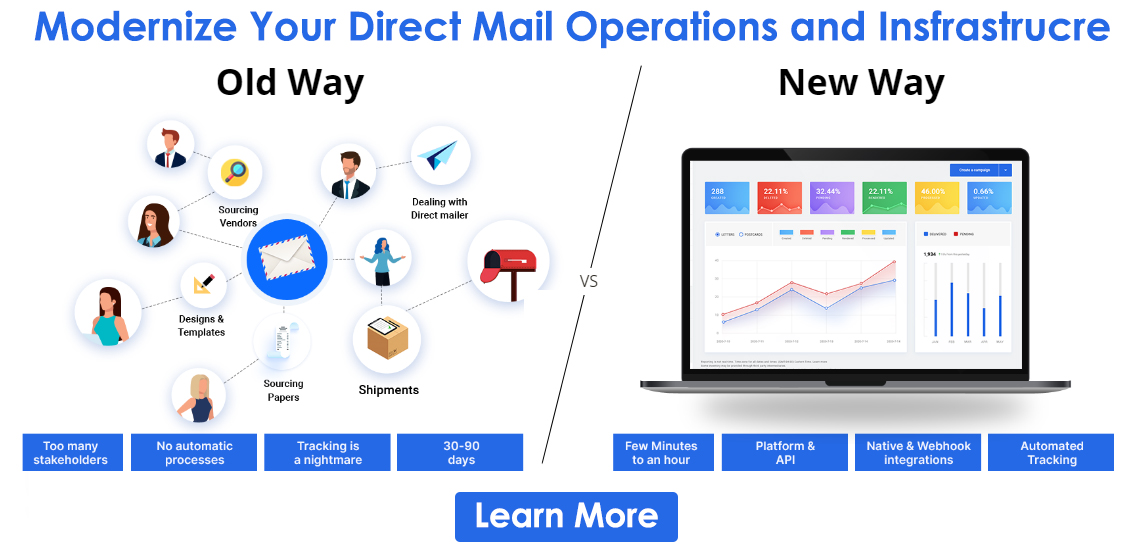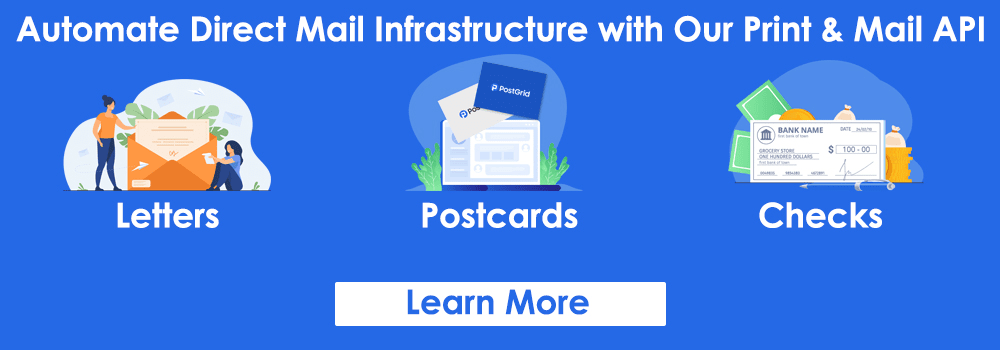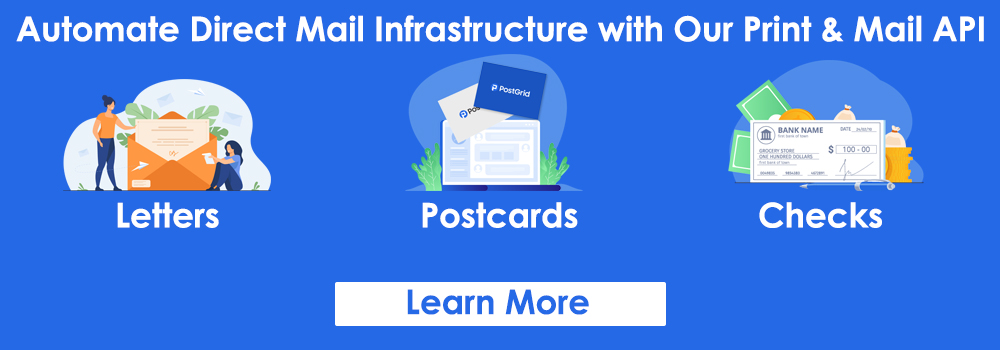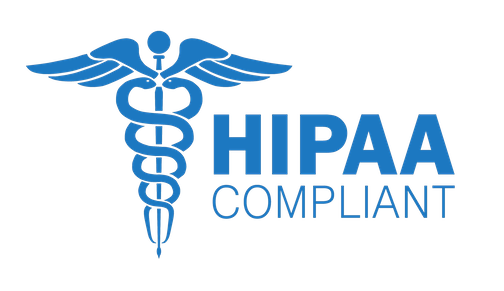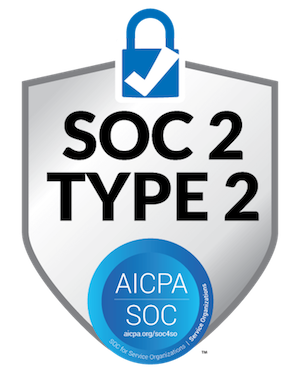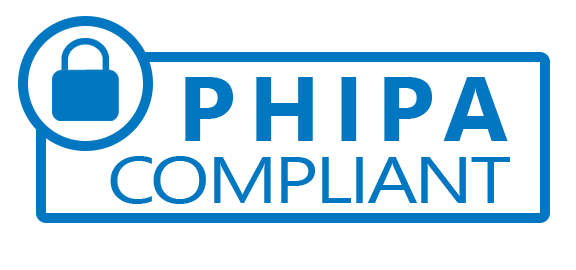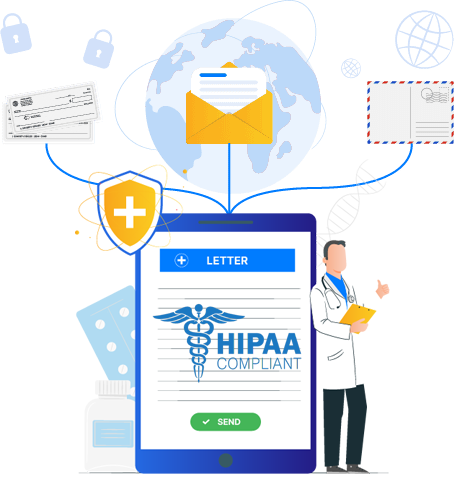
Why Do You Need Healthcare Document Management Systems to Improve Patient Care?
Documentation is the lifeblood of the healthcare industry. Physicians and professionals need effective document management to make critical decisions. People trust medical firms to give their patients the best.
Canadian healthcare professionals manage an influx of sensitive information. This data is everywhere – medical records, insurance, medical forms, etc. They must manage these documents securely and confidentially.
Canadia also enforces the PIPEDA guidelines to protect the patient’s privacy. Organizations must abide by them to keep documents secure from unauthorized access.

Most use healthcare document management systems to streamline operations and comply with the laws. They can handle everything from simple forms to crucial internal policies.
This blog will help professionals understand everything about healthcare document management. They will also explore the challenges and trends in the market.
What is Document Management Software for Healthcare?
It is a type of specialized software that helps professionals to organize, store, and manage documents. They also give helpful version control, quick document retrieval, and cloud storage features.
Physicians and caregivers often find them helpful in managing patient records, reports, billing information, etc. The ideal system also ensures compliance with PIPEDA and GDPR.
Many organizations also prefer these systems to streamline their workflow automation and share documents. They can decrease manual tasks and mistakes. Effective document management is always necessary for superior patient care and expenditure reduction.
Healthcare facilities can manage their files quickly, securely, and optimally. Many classify these systems into different categories for easier identification.
Types of Healthcare Documents Common in Institutions
Medical documents cover a wide variety of an organization’s activities. It consists of the following;
- Medical history records
- Financial records
- Test results
- Treatments
Professionals usually classify them as clinical and non-clinical documents.
Yet, many divide healthcare document management into the following subcategories:
Electronic Health Records
Physicians and professionals prefer using digital patient records in their practices. It helps them improve their workflow, productivity, and collaboration. They prefer using EHR systems to obtain patient information digitally.
Document management healthcare systems can also integrate with EHR platforms. It can make the retrieval of information much faster and more secure.
Medical Reports
Notes, summaries, and medical reports are also critical healthcare documents. Many healthcare document management systems have optical character recognition or voice recognition technology.
Professionals can take notes efficiently. They don’t need to rely on manual transcription. A document management system for healthcare
also ensures the confidentiality of the reports.
Patient Forms
Practices often find it challenging to manage and store patient forms. Healthcare document management systems are necessary to remove paper forms. Professionals can have much smoother processes with effective file handling.
Insurance and Claims
Canadian healthcare firms must ensure proper handling of medical billing and insurance claims. Healthcare document management is necessary for electronically submitting claims to insurers. It can also help in monitoring the status of claims.
Healthcare companies improve their revenue cycle by using the ideal DMS.
Financial Documents
Medical paperwork consists of financial statements, bills, budget reports, invoices, etc.
Manually managing them is a big headache for professionals. A single mistake in the documentation could lead to costly consequences.
Healthcare document management can reduce fraud and maintain overall efficiency. Firms can integrate them with their accounting system for better workflows.
Canadian Compliance and Regulations
Medical professionals manage various compliance and regulatory papers. They must take precautions while storing and accessing licenses and certifications for their facility.
Healthcare facilities depend on healthcare document management systems to guarantee the availability of these vital documents. DMS systems can also inform them about renewals or updates. Thus, practices are always compliant with the Canadian laws and regulations.
What are the Benefits of Healthcare Document Management?
The majority of organizations refrain from using manual methods for managing documents as they can be annoying and tiring. Similarly, healthcare services need to use innovative technologies to streamline and automate their enormous workflow. The following are some reasons why document management healthcare systems are critical;
Centralized Documentation for Instant Access
A Canadian healthcare organization handles hundreds of patients every day. It is a daunting task to sort and organize medical documents without automation. Healthcare organizations require an intuitive and automated infrastructure that ensures collaboration and instant access. Old and manual methods can be slow and prone to errors for your healthcare business.
Healthcare document management enables a centralized and automated platform to access and share files. Many prefer using electronic document and records management systems (EDRMS). It helps in centralizing records for the facility and ensures ease of access.
Caregivers can instantly access and share documents with this approach. Such automation helps them improve their productivity, efficiency, and overall patient care and services.
Consistent Care to Improve Patient Journeys
A central document storage provides medical firms with easy access to various files and documents. Any department or staff with authority can obtain health-related information from the system. Moreover, admins can define access levels and user roles to their document management systems. They don’t need to rely on others to provide documents.
Professionals can ensure consistent healthcare with smooth access to data. These systems are ideal for inter-departmental communication. Caregivers can expect higher collaboration with healthcare document management.
Higher Efficiency
Healthcare organizations prefer automation to reduce their workloads and optimize processes. A healthcare document management system removes manual processes.
Professionals can automatically use various databases and platforms. They never need to put in additional effort to access a file. Everything is there when they expect them to be.
Risk Mitigation
The majority of Canadian practices are adopting Electronic Health Records. They don’t prefer using paper records because of security concerns.
Digitalization enables them to use various mechanisms, such as password protection and encryption. Modern healthcare document management software can encrypt everything on the cloud.
They can significantly reduce the risk by using user permissions and access settings. There’s no need to protect the documents manually.
Automated Workflows
An effective healthcare document management system streamlines various workflows. Caregivers can do a lot within a few clicks of the mouse. They can reduce their workload and focus on other vital tasks.
Streamlining the Billing Process
Practices often need help to prepare and manage invoices. Healthcare document management systems are helpful to smoothen the billing process. Professionals can save a lot of time and effort by using a DMS.
 Also Read: Healthcare Marketing Trends
Also Read: Healthcare Marketing TrendsWhen Companies Need a Healthcare Document Management Software?
Organizations that prefer efficient work with documentation must use these tools. Yet, professionals need clear indicators to determine when to use such software.
These are some ideal scenarios for using a document management healthcare system;
If a Company is Growing by Leaps and Bounds
A small clinic can handle a handful of patients with manual documentation. Yet, it’s super challenging in an organization with 200+ employees and more patients.
The increase in paper documentation also raises the risk of human errors and mismanagement. A document management healthcare system can be the ideal preventive measure. Large organizations can be more productive with a successful implementation.
If a Firm Wants to Reduce Expenditure on Document Management
The majority of Canadian businesses are going to be paperless. Printing and storing paper documents could be a vast expense for healthcare companies.
They spend on file cabinets, paper, and shipping to maintain records. The cost is still higher if the firm is renting physical paper storage.
A healthcare document management system is ideal for such cases. It can store almost unlimited amount of documents on the cloud. The firms using cloud solutions also leave less impact on the environment.
If the Existing Document Management Strategy is Failing
The current process of handling documents can be dragging a firm. Manual processes often slow down the processes and the quality of patient care. Professionals should consider healthcare document management software in such situations.
This technology will enable collaboration on the same document in real-time. Physicians don’t have to rely on other departments to make changes.
The Employees are Losing Productivity on Document Retrieval
It is always a time-consuming process to retrieve paper documents. Professionals also need help finding documents. They can’t afford such delays in a time-sensitive industry like healthcare.
Healthcare document management software provides instant access to files. Practices can speed up their search process to provide patient care.
If a Business is Facing Compliance Issues
It is mandatory to follow the PIPEDA guidelines in Canada. Any non-compliance can lead to costly lawsuits and put the business at stake.
Professionals must ensure proper healthcare document management to avoid such consequences. Decent software never compromises compliance and security.
Latest Trends in Healthcare Document Management
A statistical overview says the DMS market had a worth of $3.88 billion in 2019. It might reach $7.25 billion at a CAGR between 2020-2025. These statistics show the rising demand for document management healthcare systems.
Many organizations need to change their out-of-date strategies. They want innovative solutions for healthcare document management. The market is changing with so many different trends in DMS technology.
Professionals must understand how to use document management healthcare tools with ease.
Prioritizing Security
Digitalization of documents is solving so many problems for healthcare organizations. Yet, it is also giving birth to new problems. Professionals cannot undermine the rise of hacking and security breaches.
Healthcare document management solutions must use top-notch security features. Government agencies also enforce strict practice rules while handling patient data.
Professionals prefer the following measures to ensure security;
- Data encryption
- Regulatory compliance
- Role-based access control
- Automated backups
- Entire audit trail within the organization
- Automatic backups
Many healthcare companies are taking security and personal training seriously. It assists them to improve their processes and productivity. However, professionals cannot overlook the importance of implementing robust antivirus software to safeguard against the rise of hacking and security breaches. Government agencies also enforce strict practice rules while handling patient data.
Mobile Access
Medical professionals need instant access to information and files. It can be time-consuming to access data from traditional computers. Mobile devices can ensure constant access to an organization’s documentation.
Healthcare document management is also available on mobile devices these days. This technology was super helpful during the COVID-19 pandemic. Professionals had instant access to critical data and files.
AI Technology
Healthcare document management systems may need innovation to keep up with the challenging needs of the industry. An increasing number of DMS are using artificial intelligence to solve this problem.
AI helps in automatically classifying documentation without human intervention. Data structuring and extraction are much faster with an AI-powered healthcare document management system.
Collaborative Workspace
Medical organizations give massive importance to successful collaboration in patient care. Healthcare document management systems ensure this by enabling instant access and editing in real-time.
It can improve the medical processes of the entire medical firm. A healthcare facility can do more things in a shorter period.
Critical Challenges of Document Management Healthcare
Almost every medical professional faces hurdles while using the DMS. They must learn to mitigate these problems to ensure the best patient care.
Medical Records Tracking
Healthcare documents must be trackable by the practices. It helps them to learn the updated history of a file. Many healthcare document management software use timestamps or metadata.
Professionals can face hurdles if they are not able to track the information. Manual methods make it harder to track the changes.
Keeping Medical Records Up-to-Date
Medical documentation must include the latest information and updates. Professionals often need help to maintain proper paperwork. They rely on other departments to keep the records up-to-date.
Security
It remains one of the critical challenges in healthcare document management. Professionals need solutions that ensure security and compliance. They don’t want to trust a solution with private and sensitive information unquestioningly.
Hackers can’t hack traditional paper records. Yet, practices can’t safeguard them with passwords, encryption, or user permissions. Storage is another concern for healthcare organizations.
Modern solutions need effective security measures. Otherwise, healthcare organizations could be one step away from costly mistakes.
Storage and Retrieval
Professionals often face critical challenges in storing and retrieving physical healthcare documents. They can access digital documents from anywhere and anytime. Yet, it is different from physical files.
Creating copies of physical documents can create significant problems with security. It may also lead to confusion. Healthcare document management systems can resolve these challenges for practices.
Most Vital Features of a Document Management System for Healthcare Industry
The expectations from a DMS could be different from organization to organization. Yet, most healthcare document management software provides some typical features.
Clean User Interface
Professionals must ensure that editing and accessing data is smooth and familiar. They need an intuitive interface with their healthcare document management software.
It could be similar to popular word processors like Microsoft Word or Google Docs. Physicians and team members will spend less time learning how to use the DMS.
User Roles
The healthcare document management solution also needs strong security measures. Admins must be able to give different permissions to different users.
This feature will restrict unauthorized usage and will display only the necessary information. Organizations can improve their privacy and avoid data leaks.
Document History
It is essential to know who updated a chart for compliance and continuity of patient care. Reliable healthcare document management software comes with automatic version control. It helps professionals with the edit history and access records.
They can keep track of every minute or significant change in a document. It improves the quality of care and decision-making process.
Customized Templates
Every healthcare document follows a format. For example, one can easily compare a doctor’s note to another. A DMS platform provides multiple customizable templates to help professionals create documents.
They can automatically generate any document with editable fields. It saves them time and effort for each situation. Professionals can elevate the functionality beyond only digitalizing a file cabinet.
Best Healthcare Document Management Practices for Professionals
Effective healthcare document management is more than digitalizing physical files. It transforms the creation, editing, and distribution of medical information.
Yet, professionals must follow the best practices while using a DMS system.
Establishing Appropriate Protocols for DMS
Practices must ensure a separate system to ensure the safety and security of sensitive patient data. There are two reasons why they need this assurance of security;
- It is vital to keep the patient’s data safe.
- Healthcare organizations must be compliant with government regulations.
Experienced professionals take necessary measures to protect the data and communications of their practice.
Create Document Tracking
Healthcare firms can face significant risks while handling sensitive data. Everyone using the DMS must be following the guidelines. It will make tracking document records much more accessible.
Organizations must ensure everyone has reviewed and signed documents of their policies. The proper use of user access and role permission settings is necessary. This way, they can also ensure compliance with government regulations.
Provide Online Collaboration
A healthcare organization comprises multiple departments and team members. Collaboration is vital to fulfilling medical needs and patient care.
Professionals must ensure online collaboration to connect with the patients personally. Multiple team members can play a significant role in a patient’s journey.
A healthcare document management system must provide smooth coordination. Professionals must be able to work together in real time. Patients should also have a point of contact with their physicians.
Ensure System Integration
Professionals must ensure the smooth integration of healthcare document management systems. It enables every department to easily access, view, and edit patient documents. They can also reduce patient waiting time with faster integrations.
Use PostGrid Print & Mail API for Healthcare Document Management
Medical professionals must uphold the importance of physical documentation. They need something innovative that promotes higher security, compliance, and smoother operations.
PostGrid’s print and mail API for healthcare is the ideal solution for these professionals. They can use it as healthcare document management software to manage and send physical mail. Our print delivery network is fully compliant.
Practices can ensure their sensitive and confidential data is secure. They have unlimited sending possibilities while abiding by PIPEDA/HIPAA standards.
Features of Our API for Effective Healthcare Document Management
- Fully compliant print delivery network with PIPEDA and HIPAA regulations
- Automation with trigger-based mailings
- Smooth integration with over 1600 tools
- Customizable healthcare mail
- Enterprise-grade security with secure servers
- Detailed reporting and analytics
Sign up now to smoothen your healthcare document management.
| You may also want to read | |
|
1. |
Top Hospital Management Software |
|
2. |
Payment Terms Change Letter to Customer |
|
3. |
What are SIC Codes Canada |
|
4. |
Canada Post Flat Rate Box |
|
5. |
Hvac Marketing Ideas |
|
6. |
What is Hybrid Mail |


